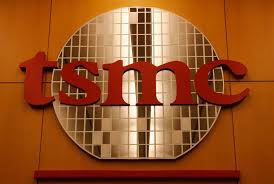Overview
Taiwan Semiconductor Manufacturing Company (TSMC) is the world’s largest and most advanced pure-play semiconductor foundry. It manufactures integrated circuits (ICs) for a wide range of customers, offering high-performance, energy-efficient, and scalable process technologies. TSMC plays a central role in the global electronics supply chain, enabling innovation across industries such as mobile computing, artificial intelligence, automotive, telecommunications, and consumer electronics.
Foundation and Early Development
TSMC was founded in 1987 in Hsinchu, Taiwan. The company introduced and popularized the pure-play foundry model, which separates chip design from manufacturing. This approach allowed TSMC to serve multiple customers without competing with them, fostering an open and collaborative ecosystem that accelerated the growth of fabless semiconductor companies. TSMC’s early success helped establish Taiwan as a global center for advanced semiconductor manufacturing.
Business Model
As a foundry, TSMC does not design its own chips. Instead, it focuses exclusively on:
-
Manufacturing wafers for customers based on their proprietary chip designs.
-
Providing design enablement tools and resources to help clients optimize their designs for TSMC’s manufacturing processes.
-
Offering backend services including assembly, packaging, and testing through collaborations and in-house capabilities.
This business model has made TSMC a trusted, neutral partner for hundreds of semiconductor companies around the world.
Technology Leadership
TSMC is renowned for its continuous leadership in semiconductor process technology, with significant milestones including:
Advanced Process Nodes
-
Volume production at 7nm, 5nm, and 3nm nodes using FinFET transistors.
-
Ongoing development of 2nm and beyond, incorporating GAAFET/nanosheet technology.
-
Integration of extreme ultraviolet (EUV) lithography into high-volume manufacturing for improved pattern fidelity and cost reduction.
Specialty Technologies
-
RF and analog technologies for smartphones and 5G communications.
-
Embedded non-volatile memory (eNVM) for microcontrollers and secure applications.
-
High-voltage and BCD processes for power management and display drivers.
-
MEMS and CMOS image sensors for cameras, medical devices, and sensors.
Advanced Packaging
-
CoWoS (Chip-on-Wafer-on-Substrate): For high-performance chiplets and interposers.
-
InFO (Integrated Fan-Out): For compact, high-density packaging used in mobile and AI processors.
-
SoIC (System on Integrated Chips): A 3D stacking technology supporting high bandwidth and low latency.
Key Customer Segments
TSMC manufactures chips for a diverse set of industries:
-
Mobile Computing: Leading-edge SoCs for smartphones, tablets, and wearable devices.
-
High-Performance Computing (HPC): CPUs, GPUs, FPGAs, and AI accelerators for cloud and data center infrastructure.
-
Automotive: Safety-critical MCUs, ADAS chips, and automotive-grade processors.
-
Internet of Things (IoT): Ultra-low power connectivity, sensors, and edge computing ICs.
-
Consumer Electronics: Chips for smart TVs, gaming consoles, and home automation.
-
Networking and Telecom: SoCs for switches, baseband processors, and optical transceivers.
Global Footprint
TSMC operates fabrication and design facilities around the world, with major manufacturing hubs in Taiwan and a growing presence internationally:
-
Taiwan: The majority of TSMC’s fabs are located in Hsinchu, Tainan, and Taichung, including its most advanced 3nm and 2nm lines.
-
United States: New fabs are under development in Arizona to support 5nm and 3nm production for North American customers.
-
Japan: TSMC is building fabs in Kumamoto for mature nodes and automotive applications, with potential future expansion into advanced nodes.
-
Europe: Plans underway to support European automotive and industrial semiconductor demand.
-
China: TSMC operates mature-node fabs in Nanjing for regional customers.
Research and Development
TSMC is one of the top R&D investors in the global semiconductor sector. Its focus areas include:
-
Process scaling and transistor architecture innovation.
-
Advanced materials and lithography.
-
Heterogeneous integration and 3D packaging.
-
Design-technology co-optimization (DTCO) for improving chip performance and manufacturability.
-
Silicon photonics and advanced interconnects.
R&D operations span Taiwan, the United States, and other regions to maintain global innovation capacity and collaboration.
Sustainability and ESG Initiatives
TSMC has set ambitious goals to reduce its environmental footprint while supporting sustainable growth, including:
-
Targeting 100% renewable energy usage in overseas fabs and increasing adoption domestically.
-
Reducing water consumption and maximizing water recycling in its fabs.
-
Committing to carbon neutrality and greenhouse gas reduction targets.
-
Supporting STEM education and workforce development programs globally.
Strategic Importance and Market Position
TSMC is widely considered the backbone of the global semiconductor supply chain. Its ability to produce chips at advanced nodes, often ahead of competitors, has made it a critical enabler of innovation in consumer electronics, cloud infrastructure, and AI.
-
TSMC serves nearly all major fabless semiconductor firms and several integrated device manufacturers.
-
It has the largest global market share among pure-play foundries and continues to outpace competitors in capital expenditure and yield at advanced nodes.
-
The company plays a strategic role in geopolitical discussions related to supply chain resilience, national security, and technology sovereignty.
Vision
TSMC’s vision is to be the trusted technology and capacity provider for the global logic IC industry. It aims to enable the future of intelligent devices and systems by offering unparalleled manufacturing excellence, technical innovation, and ecosystem leadership.







Comments
There are no comments yet.
You must register or log in to view/post comments.